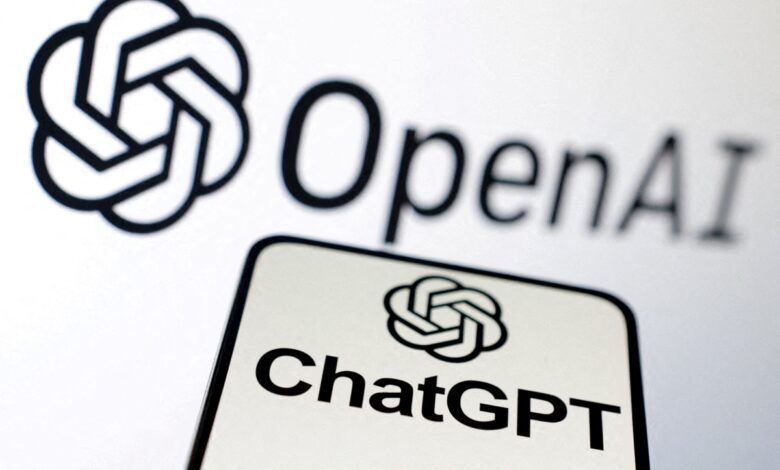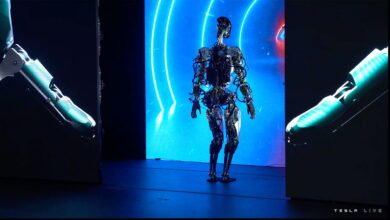OpenAI Will Create AI Chips Amid Global Shortages

The innovative business OpenAI, which is responsible for ChatGPT and other potent AI models, is mulling over the possibility of developing its own AI chips in order to alleviate the severe shortage of AI hardware. Even though no official decision has been made, discussions among employees have centered on potential answers to this issue. One of the potential solutions being discussed is the acquisition of an artificial intelligence chip manufacturer.
According to the sources, the technology company has spent the better part of the past year investigating various solutions to the problem of a severe lack of expensive AI processors, which are absolutely necessary for the company’s operations. These options include developing and manufacturing its own artificial intelligence chips, strengthening ties with well-known chipmakers such as Nvidia, and increasing its processors supply outside of Nvidia.
According to Reuters, OpenAI has kept mum and has declined to make any public announcements regarding its plan to manufacture its own chips. The company has also refused to comment on the matter.
AI Chips are In-Demand
The Chief Executive Officer of OpenAI, Sam Altman, has emphasized the importance of acquiring additional AI chips. He cites concerns about the scarcity of cutting-edge processors that are required to power OpenAI’s cutting-edge software and the prohibitive costs involved with maintaining the necessary hardware infrastructure as reasons for this necessity.
The cost of using ChatGPT and other OpenAI apps is significant. According to estimates provided by Bernstein analyst Stacy Rasgon, ChatGPT pays a total of 4 cents for each query. In order to scale up to a small percentage of Google’s search activity, an initial investment of about $48.1 billion in GPUs would be required, in addition to an ongoing yearly chip cost of approximately $16 billion. Both of these costs would need to be covered by the company.
The surge in demand for generative AI, which is good for GPU producers like Nvidia, has placed a significant strain on the supply chain for graphics processing units (GPUs). A large consumer of GPUs, Microsoft has issued a warning about the possibility of service interruptions brought on by a severe shortage of artificial intelligence server hardware. In addition, it appears that Nvidia’s high-performance artificial intelligence processors won’t be available until the year 2024.
Although the cost of utilizing these GPUs is high, they are vital for operating and supplying OpenAI’s AI models, which rely on cloud-based clusters of GPUs to manage client workloads. Although the cost of utilizing these GPUs is high, they are essential for operating and supplying OpenAI’s AI models.
Read Also: How Can Artificial Intelligence Consultants Help Your Business In 2023
OpenAI is not acting alone in its efforts to construct its own artificial intelligence machines. IT giants like Google and Amazon have already made their way into this industry with the introduction of products like Google’s Tensor Processing Unit (TPU) and Amazon’s selling of bespoke processors for use in AI training and inferencing. There have been allegations that Microsoft and AMD are working together to develop the Athena internal AI processor, which OpenAI is currently evaluating.
With over $11 billion in venture capital funding and annual sales that are getting close to $1 billion, OpenAI is in a position to make significant investments in research and development. According to TechCrunch, the technological corporation is rumored to be considering the sale of some of its shares in order to get its secondary-market valuation up to $90 billion.
Sam Altman Aims to Solve Climate Change Using AI
In other recent developments, Sam Altman has recently shared his thoughts on the possibilities for geoengineering to combat climate change on the social media platform X (which was formerly known as Twitter).
i wish the world were studying solar geoengineering more.
clearly have misgivings about it, but it’s so relatively cheap that i think some country is just going to do it if/when the climate crisis gets bad enough as a temporary patch.
would be great to learn more before then.
— Sam Altman (@sama) October 5, 2023
According to VentureBeat, In research solar geoengineering, potential as a workable solution to the problem of climate change, Altman emphasized the importance of conducting study on the topic. He had a positive outlook on the forthcoming scientific advances, particularly those related to exploration.
“The scientific discoveries of the coming few decades will be breathtaking,” he announced on Twitter.












I’m often to blogging and i really appreciate your content. The article has actually peaks my interest. I’m going to bookmark your web site and maintain checking for brand spanking new information.
Good post! We will be linking to this particularly great post on our site. Keep up the great writing